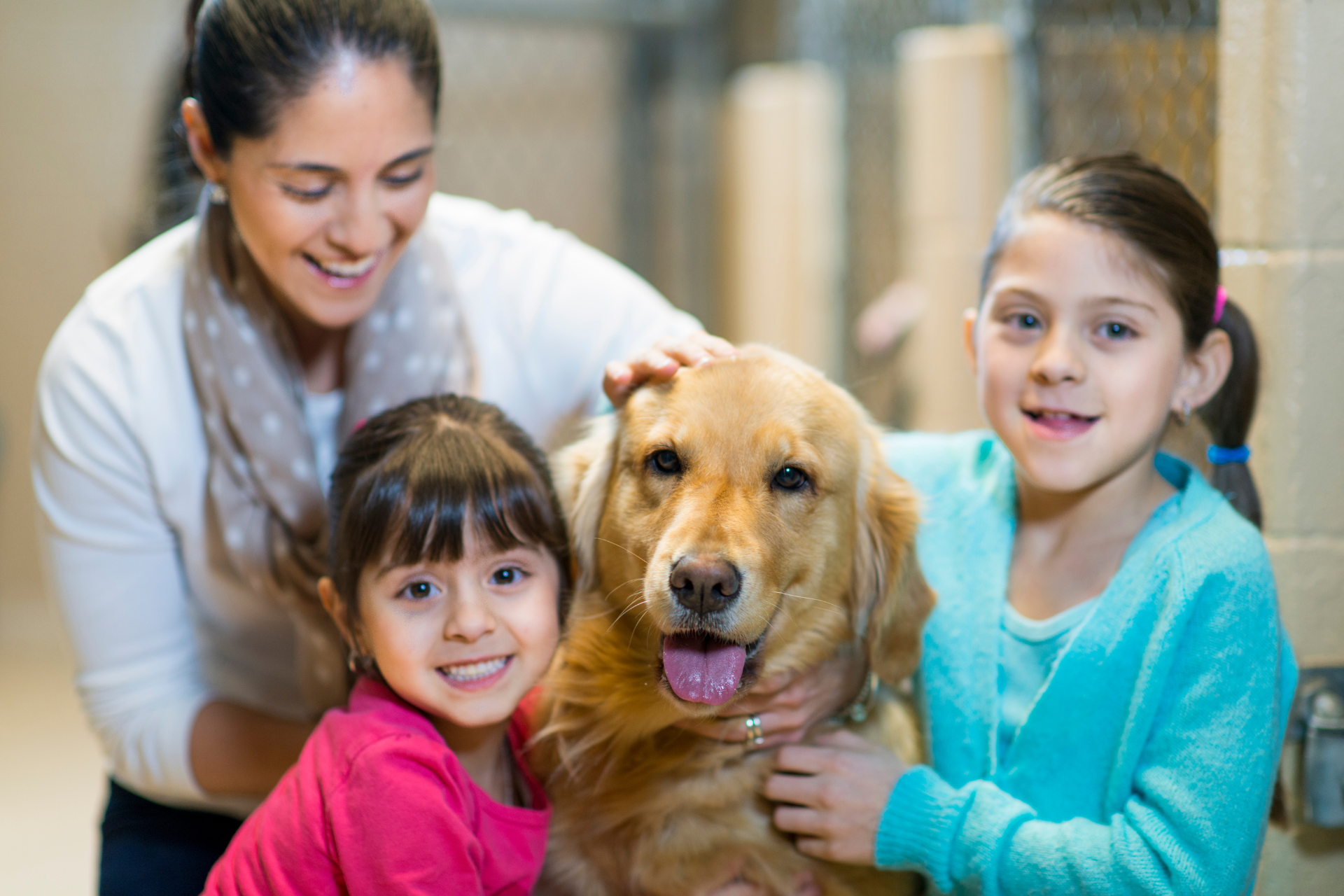The home study is an important part of your adoption journey. This is your chance to show that you will be able to provide a safe and loving home for a child. Many different points come up at this stage of the process. For some families, one particular issue is top of mind: your dogs.
Are dogs an obstacle to adoption?
A well cared for dog may actually be a plus for your home study. Your pet can show that you are able to care for and love someone who depends on you for their wellbeing. A well-trained dog can be an indication that you are responsible and able to invest time and attention — a characteristic that can be a sign of a good parent. These points are most relevant for people who do not yet have any children.
Be prepared to show your dog’s vaccination records and your dog’s crate, dog run, bed, or other space. Some adoptive parents have also presented the dog’s training certificate or a letter from their vet attesting to the dog’s gentle temperament. This kind of preparation could be especially useful fi your dog is large or intimidating in appearance.
“Dangerous” breeds
In the state of Massachusetts, specific dog breeds can be an obstacle for hopeful adoptive families. If you have Rottweilers, Pit Bulls, German Shepherds, or mixes of these breeds, you can be denied the chance to adopt a child.
That law is changing, but the existence of that law in the first place is evidence of the attitudes that worry the owners of these stereotyped breeds of dogs. Arkansas law specifies that “All water hazards and dangerous pets will be assessed” during a home study. If your social worker feels that your dog is dangerous, you could have problems. And the truth is, many people do consider certain dog breeds to be dangerous.
A study of children injured by dog bites found that pit bulls (also known as Staffordshire Terriers) and Labradors were the most frequent culprits, followed by Boxers, Rottweilers, and Beagles. However, the pit bulls were responsible for 39% of the bites, and all the other listed dogs were in the single digits. Other studies showed pit bulls as the aggressors in more than half of the cases, with various other dogs on the lists in smaller proportions. These numbers suggest that pit bulls may in fact be a safety concern.
Arkansas does not have any laws about specific breeds of dogs and adoption, but it is always possible that an expectant mother, an adoption agency, or the social worker who conducts your home study may have preconceptions about some breeds of dogs. Be prepared to discuss these concerns and to demonstrate that your dog is harmless.
Preparing your dog for your new child
Some beloved dogs become jealous of a new baby in the house. If you adopt an older child, plan to teach your child how to interact safely with a dog. Either way, be sure to spend some supervised time with the dog and child together before leaving them alone together. A child may innocently startle a dog and cause it to snap.
Obedience training is a good idea for your dog, especially when you plan to bring a child into your home. Thorough training can help you show off a well-behave dog at your home study, and make the transition easier when your child arrives.
Adoption home study and your dogs may seem like an incompatible duo, but it doesn’t have to be that way.

